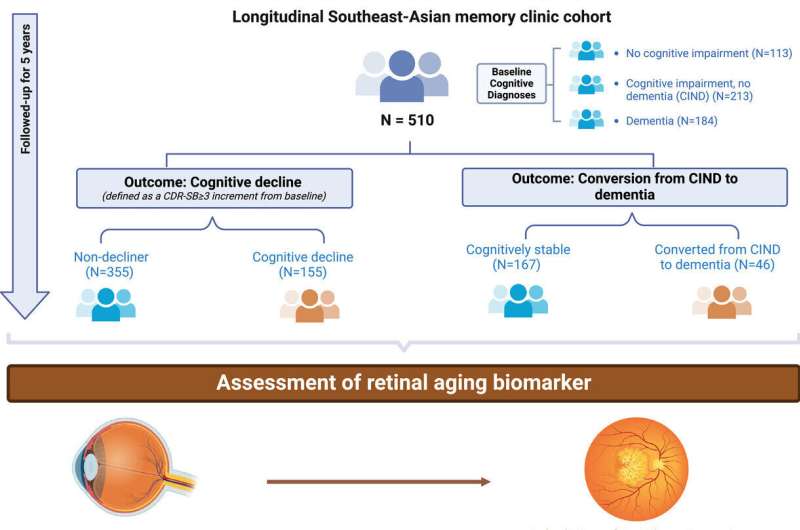Jointly led by Professor Cheng Ching-Yu, director, Center for Innovation and Precision Eye Health, NUS Medicine, and Professor Christopher Chen, deputy chair, Healthy Longevity Translational Research Programme, NUS Medicine, the research team developed a novel deep-learning biomarker known as RetiPhenoAge, which estimates the biological age of the retina based on standard eye images.
The study analyzed data from over 500 participants recruited from memory clinics in Singapore. The findings showed that individuals with higher retinal biological age were at significantly greater risk (up to 25–40% increased risk, per standard deviation increase in RetiPhenoAge) of developing cognitive decline or dementia over a five-year period.
These findings were further validated in a larger population sample using data from more than 33,000 participants in the UK Biobank. In this cohort, elevated RetiPhenoAge was similarly associated with a higher risk of developing dementia over twelve years of follow-up, reinforcing its predictive utility across diverse populations.

